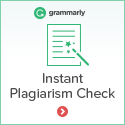Creating a Publisher Business Plan for Your Writing, Publishing, and Book Selling Business
Establishing a publisher business plan is a simple writing project that maps out the future expectations of your writing and publishing business as well as sets some financial goals for your business so you have something to shoot for.
Every business needs a plan that includes a purpose, describes your product, evaluates your target market and competition, and projects out financial expectations. It can be as thorough and complex as you want it, but you should have something down on paper to remind you of what you are trying to accomplish with your writing.
Sections of a Publisher Business Plan
A properly drafted business plan for a publishing business should include the following topics:
1. An Executive Summary. This is a paragraph or two description of what your business is all about.
2. Your Product or Service. Your product or service is easy. In this case, your product is your book or books if you plan on writing more than just one. Or if you are going to offer your services as a writer, it is the type of service you are going to offer.
3. Your Target Market. This is the readers who will be interested in your book, including age group, area (such as country), and more detailed genre or type of book(s) you are writing such as a mystery novel, science fiction, or romance.
4. Your Competition. Do some research within your market to determine how many published authors have written books similar to yours within your specific market. This can be rather difficult, but it gives you an idea of how many other writers are really out there in your genre. Competition is a good thing - that means there is money in that market. If there is no competition, there is no real market.
5. Your Marketing Plan. This is a vital part of your publisher business plan. This is how you will advertise, how you will make sales, and all of the ways you will get readers to find your books. You should concentrate on this part the most. This involves the marketing process of how you will advertise your book (from before publishing to post publishing), the selling process or how people will purchase your book, and the distribution process or how people will receive your book after they buy it.
If you need some help in the form of how to promote your books, jump on over to the how to sell your books It will help you choose the right marketing plan for your type of writing.
6. Your Financial Projections. The financial numbers in your plan show your potential earnings based on goals you set for your business - what you would like to earn and how you will earn it. It also shows where money for your expenses comes into play, primarily advertising so you can make more money.
This may also be represented with how many books you need to sell in order to reach certain financial goals with your writing business. This shows you the potential for your business and helps you establish writing goals to get it done. It is also a great motivator to help keep you chuggging along.
If you aren't an accountant or don't know how to determine financial projections, you should definitely find someone that can help you with this. Share your ideas with them, determine some financial goals, thus determining how many books you must sell in order to break even with your writing business. This also includes your expenses, so it is always good to create a writing budget to present to your accountant to give them a good place to start.
7. Risks, Failure, and Mitigation. There are always risks when you start a business. You are going to fail at some things. You should always consider all of the risks and potential areas of failure involved with your publisher business and a plan to mitigate those risks by applying your creativity, spelling it out in your publisher business plan.
An example of a possible risk involved with book marketing is having a bad book signing where no one shows up to buy your books. In this case, you would determine how you will overcome this by perhaps quickly conducting another book signing in a better location using the same props and books you have bought for the first signing so it doesn't cost you any more money in preparations.
That's it in a nut shell. Pretty simple. The minimum you should have in your plan is the executive summary, products, target market, competition, and the marketing plan. Once you have some estimates of price and how many books you need to sell, you can determine the financials. The important part is to get your business pumping out books, so gear your plan toward finishing some books and getting them published.
Once your business plan is written and ready to go, you must take action on your plan and follow through with forming your publisher business. Make it official! Let everyone know you have established your business and that you have deadlines and things you must do to make money with your writing.
If you need help with this, please contact me and let me know. If you have any feedback or lessons learned, please share them with me and I will incorporated it on this page to help others.






